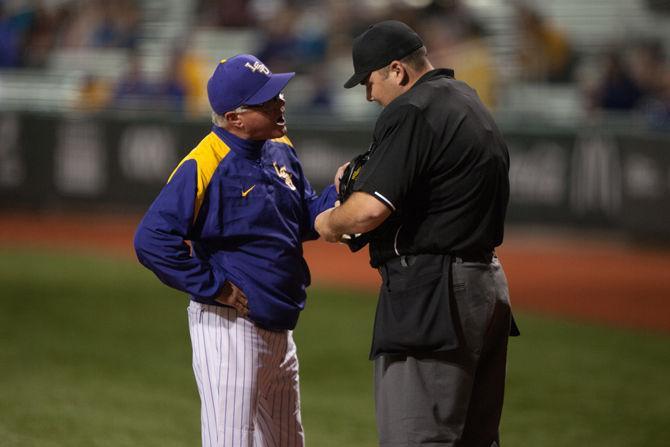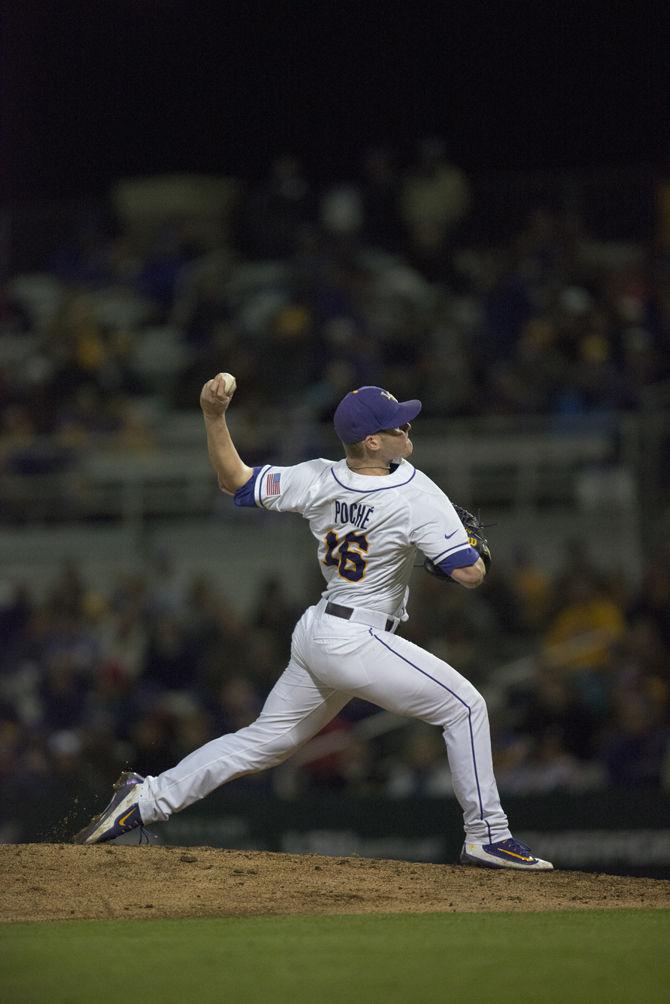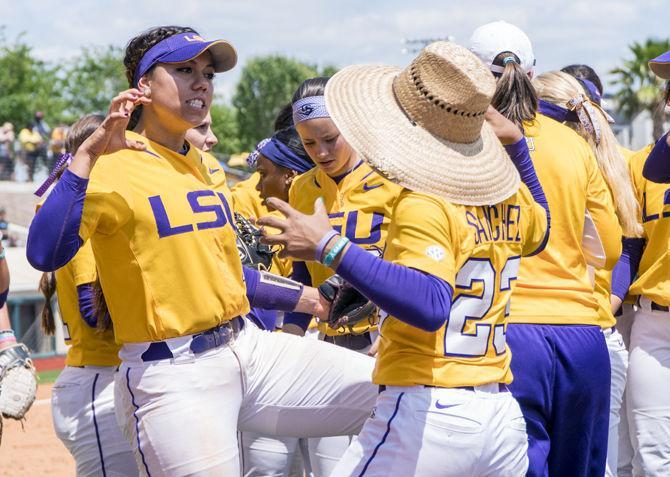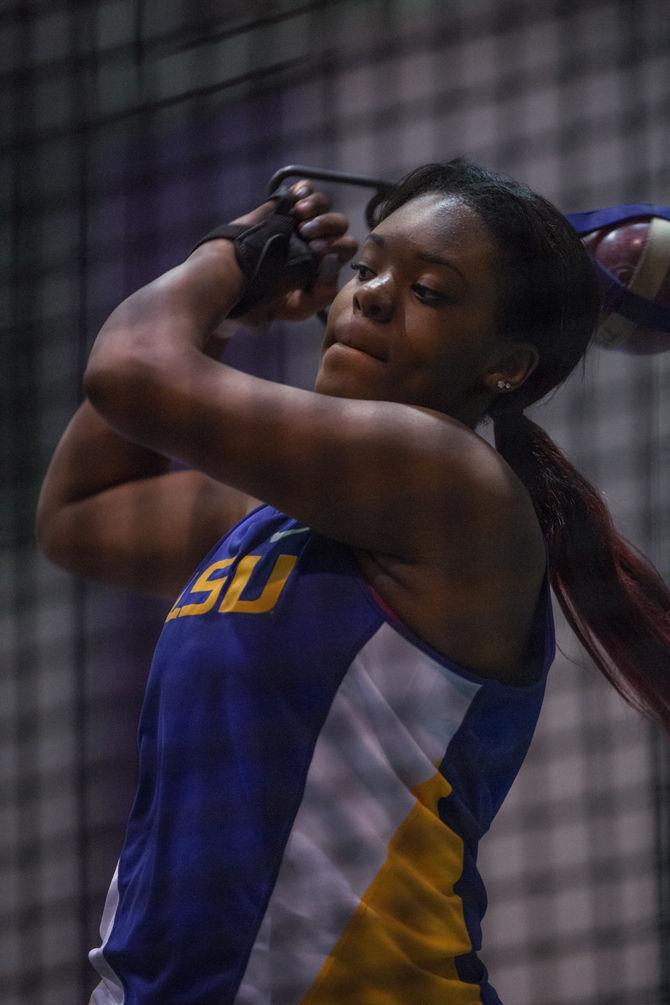At a media session prior to the 7-1 loss to Tulane on March 29, LSU coach Paul Mainieri was asked about what he and his coaching staff prioritize when it comes to recruiting.
“Every year is a little bit different,” Mainieri said last week. “The No. 1 priority is always pitching. You have to get the arms to be competitive. I know everyone loves offense, and I do too. But, if you give up 7-8 runs a ball game, you’re going to have no chance to win in this league.”
When it comes to position players, Mainieri explained he looks for versatile players – ones who play defense as well as hit. How well a player plays defense becomes just as important as what they show at the plate in high school, which can be difficult to project.
“It’s hard to take a chance on those guys when you have a limited amount of roster spots,” Mainieri continued. “It’s also hard to let those guys have 2-3 years to develop when you have to win every year.”
In a season defined by youth and inexperience, Mainieri has had to grapple with a lineup that shows less pop than its predecessor.
Gone is the Tiger offense that held a league-leading .314 batting average, 15 percentage points higher than the next-best lineup.
Gone is the lineup that recorded 762 hits, 146 doubles, 23 triples, 51 home runs and 451 runs, which all ranked somewhere in the top five in the conference.
Often times, it’s difficult to process how much of a loss that is until one sees the production, or lack thereof, at the plate. Frankly, up until this weekend’s series against Auburn, there wasn’t much to be optimistic about offensively.
But sometimes it takes one or two moves to jump start an offense, especially in terms of extra base hits. Trailing by four runs early in Game 1 against Auburn, Mainieri substituted junior catcher Jordan Romero for sophomore Michael Papierski in the fourth inning.
Two doubles, two home runs and seven RBIs from Romero later, the pop had been found and LSU walked out of Plainsman Park Sunday with its first league series win.
But Romero wasn’t the only move that proved beneficial to the offense.
Sophomore first baseman Greg Deichmann slid into the three hole for all three games, including the final two, when Romero batted cleanup.
The result?
Deichmann collected four RBIs, including a two-run home run in the Game 1 loss. On the season, Deichmann and Romero have combined for half of LSU’s 18 home runs.
“[Romero] and Deichmann hitting in the middle of the order were obviously tremendous threats for us,” Mainieri said Sunday. “We’ve been lacking so much in the extra base hit department.”
So much was made about LSU’s inability to plate runs with runners in scoring position over the majority of the eight previous games before the Auburn series. But extra base hits can alleviate the need for three or more hits to score a run, a pattern LSU toiled in recently.
On its way to 23 total runs this weekend, eight more than it had in the first six SEC games combined, LSU picked up eight extra base hits, a number Mainieri can’t ignore.
“If the only time you score runs is by getting a hit with a runner in scoring position, then you’re counting on a lot of luck as well,” Mainieri said. “It’s nice when you can score a runner from first base or even score yourself from home plate with a home run.”
LSU isn’t complete offensively by any means, and Auburn’s pitching staff, which has the highest team ERA in the SEC, is far from the best LSU will face this season. Consistency has to be the goal with a critical home series against Vanderbilt, a top-five team nationally with the second best team ERA in the league.
However, Mainieri believes his team is only “one game behind” of where he expected it to be at this point in the SEC schedule, considering the two road series. With a pitching staff showing flashes of composure throughout the weekend, a growing club may look back at the Auburn series as a turning point by season’s end.
OPINION: Modified Tiger lineup showing growth at right time in SEC play
By James Bewers
April 3, 2016
LSU head coach Paul Mainieri discusses a recent call with the referie during LSU’s 6-3 win against Louisiana Tech on Tuesday, March 8, 2016 at Alex Box Stadium
More to Discover








